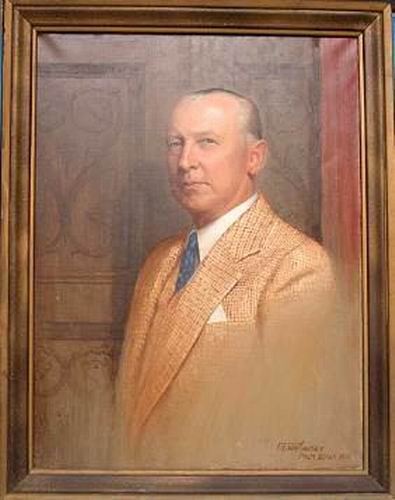|
| Author |
Message |
    
richarddurgee
Senior Member
Username: richarddurgee
Post Number: 923
Registered: 11-2001

| | Posted on Thursday, December 08, 2005 - 07:39 am: | 




|
Vonhausen portrait Atwater Kent
 |
    
richardday
Senior Member
Username: richardday
Post Number: 495
Registered: 11-2003

| | Posted on Thursday, December 08, 2005 - 08:28 pm: | 




|
A very interesting man. In the 1930s his employees went on strike for more pay. He fired them closed up the plants repeat plants and retired I think to Maine where he had a very powerful PA system that drove the people around the lake nuts with the music playing at night according to local lore. Don't know about the music part of it but I think its pretty well docuament regarding his labor relations in the
Great Deprssion. |
    
richarddurgee
Senior Member
Username: richarddurgee
Post Number: 924
Registered: 11-2001

| | Posted on Thursday, December 08, 2005 - 09:52 pm: | 




|
He was defintely a character!
-
Worcester Polytech Institute, Worcester Mass.
A. Atwater Kent '00
Atwater Kent never graduated from the Institute. In fact, he never really came close. He enrolled in 1895, but dropped out after one semester. He came back the following year, but found his science and math courses daunting. Before the year was done, he was asked to withdraw and told his future looked dim.
Fortunately, he ignored that prediction. Early in his career, he invented an improved automotive ignition that won him the Franklin Institute's John Scott Legacy Medal. After World War I, he began building radio receivers. The simply designed but expertly crafted radios found a wide audience and by 1929 his company was producing a million receivers a year. The stock market crash of that year nearly destroyed the business, though his company would continue to produce radios until 1936.
Kent was a generous man who donated countless radio receivers to various institutions - including WPI (one of the radios can be found today in the Electrical and Computer Engineering Department offices). He also donated the Atwater Kent Museum to Philadelphia and paid for the restoration of the Betsy Ross House. He served as a WPI trustee for several years and received an honorary doctorate from the Institute in 1926. Upon his death in 1949, the university decided to formally attach his name to its electrical engineering building. |
|
|
|


|


